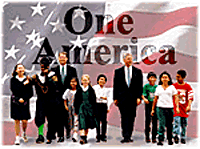 |
 |
The Public Conversation Project emerged in 1989 from a brainstorming group that explored whether family therapists could use their professional expertise to develop conflict resolution aimed at improving public discourse related to diversity in America. Originally housed under the Family Institute of Cambridge, the project became a nonprofit organization in 1996. The Public Conversation Project collaborates with participants to create dialogue sessions to discuss the popular misconception of stereotypes, the importance of diversity and how to promote better relationships among people.
Prior to each dialogue, the facilitators meet with participants in a pre-meeting designed to exchange their hopes, concerns and experiences. Participants then review a draft of ground rules intended to prepare them to deal with issues in a manner that promotes dialogue rather than debate. Group discussions begin with a series of questions that each person must answer. The dialogue generally ends with participants sharing their reflections on the process and exploring implications and next steps. Participants are also asked to fill out evaluation forms and, in some cases, asked to participate in follow-up conversations with the facilitators. The length of each dialogue session varies with the interest of group participants.
Outcomes and Significant Accomplishments In 1997, the Public Conversation Project received the Mary Parker Follett Award for innovative contributions to the field of conflict resolution from the Society of Professionals in Dispute Resolution. Since its inception, the program has sponsored over 60 dialogue groups of up to 200 people. The organization has published a number of reports on projects and outcomes from the dialogue groups, which are available upon requests.
|
![]()
To comment on this service,
send feedback to the Web Development Team.
![[White House icon]](/New/images/home_pin.gif)
![[Help Desk icon]](/New/images/help_pin.gif)